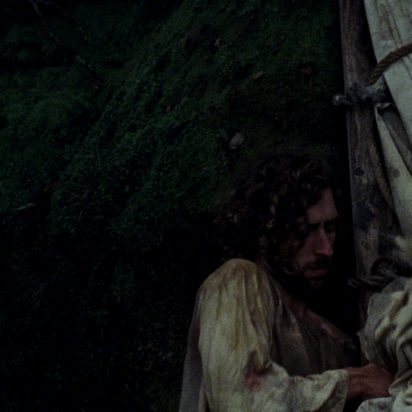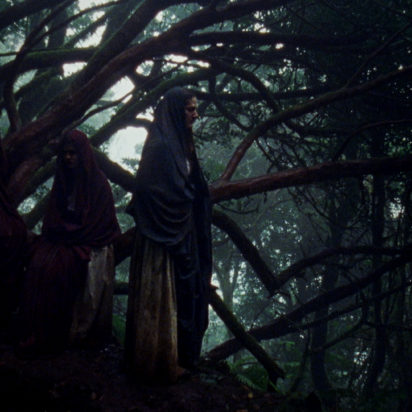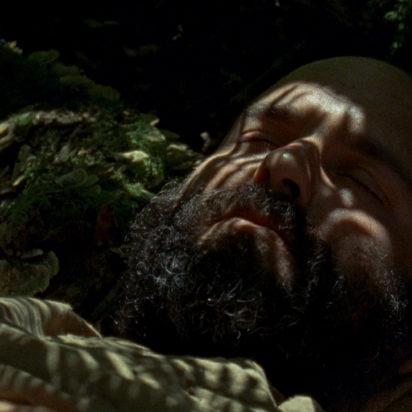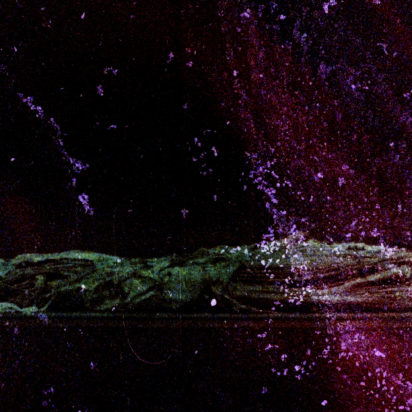Title: Plus Ultra
Genre: Fiction – Experimental
Runtime: 13 minutes
Shootinf format: Super 16mm. and 16mm. with expired color negative film handmade developed
Screening format: DCP
Country of production: Spain
Original language: Spanish
Subtitles: English
Produced by: El Viaje Films · Filmika Galaika
Production year: 2017
Release Date: 3 August 2017 (Locarno Film Festival)
Color: Color
Aspect ratio: 1.77:1
Sound: Dolby 5.1
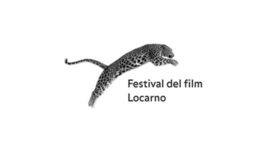
Director: Helena Girón & Samuel M. Delgado
Writers: Helena Girón & Samuel M. Delgado
Production: Marina Alberti, José Alayón (El Viaje Films) · Beli Martínez (Filmika Galaika)
Cinematography by: Helena Girón & Samuel M. Delgado
Film editing by: Helena Girón & Samuel M. Delgado
Sound department: Juan Carlos Blancas
Focus Puller: Cris Noda
Costum Design: Camino H. Allende
Colorist: Ignacio Fernández
Cast: David Pantaleón, Rubén Rodríguez, María Isabel Díaz, Elena Navarro, Mercedes Pintado.
- Locarno Film Festival – “Pardi di domani”
- Festival de cine de San Sebastián – Sección Zabaltegi-Tabakalera
- LPA International Film Festival – Richard Leacock Award for Best Short Film
- Locarno International Film Festival – Pardi di domani
- FIC Valdivia – Nuevos Caminos
- Curtocircuito International Film Festival – RADAR
- Chicago International Film Festival
- Âge d’Or festival – Âge d’Or
- Festival Internacional de Cine documental y cortometraje ZINEBI
- AntofaDocs – Nuevos Lenguajes
- Festival de Cinema Independent de Barcelona, L’Alternativa
- Festival Internacional de Cine de Mar del Plata – Estados Alterados
- Muestra de Cine de Lanzarote
- The Unforseen International Experimental Film Festival
- Tenerife Shorts
- VIA XIV – Festival Internacional de cortometrajes de Verín
- FICUNAM – El Porvenir
- Festival Internacional de Cine de Murcia – IBAFF
- Festival Internacional de Cine de Cartagena de Indias – FICCI
- Locarno Festival in los Ángeles
- Festival Cinematográfico Internacional de Uruguay
- Fronteira Festival
- Fracto Berlin Experimental Film Festival
- Hamburg International Short Film Festival
- Mostra de Cinema Periférico (S8)
- Festival de Cine Lima Independiente
- Filmadrid
- MARFICI
- Cámara Lúcida – Encuentros de cine
- Curtas Vila do Conde International Film Festival
- Filmoteca Española – Cine Doré – Carta blanca ZINEBI
- Nomadica – Weekend with the Dead by Circuito Nomadica
- Cinespaña – Toulouse
- FIDOCS Santiago de Chile
- Festival International du Film d’Amiens
With Plus Ultra we are continuing to develop the ideas that we approached in our previous work, Burning Mountains that Spew Flame, mixing fiction and experimentation through the emergence of subtle traces of narrative traversing the immersive experience that we aim to create. On this occasion we set our sights on historical fiction speculating on the relationships between mythology and political fictions that subsume our collective imagination, so we can question the meaning of progress and the symbols that are used in an attempt to construct our identity.
“Plus Ultra” is the slogan of the Spanish state. Today, it continues to adorn the country’s coat of arms. At the beginning it was introduced as a way of furthering the “intrepid” spirit and work of the conquistadores who had devastated the New World. The alleged great feats of this conquest, or “discovery” as it is known, continue to be extolled in the Old World by an endless collection of symbols. The Canary Islands were the last piece of land that Christopher Columbus’ sailors set foot upon before arriving in America. At that time the islands were in the middle of being colonized and the native people were still resisting the Spanish mainlanders. It was not only supplies that these men carried off from the islands; they took new techniques with them as well. The Canary Islands were the testing ground where many of the strategies later used by the conquistadores in the Americas were developed. These martial techniques led to the complete disappearance of the aboriginal inhabitants of the Canary Islands. Today, their mummies, shown at the beginning of our film, are the only who bear witnesses to that time. They remind us that there can be no document of civilization, which is not at the same time a document of barbarism.
To this end, we head to an exuberantly ungovernable territory on the island of Tenerife: the Anaga mountains. Here the aboriginal Guanche resistance was nearly invincible due to the specific orography of the area: a labyrinth of cliff and mountain where perceptions of time and space are shattered. This battle took place in 1492, the year of the “discovery”.
We use fiction in our approach to this project because we find it to be the best way to construct a reference to the historical fiction that sustains many of Europe’s fundamental myths. In the encounters between the sailors, who carry an ambiguous object, ¬—it may be the sail from one of the Conquistador’s ships or possibly the remnants of an aboriginal mummy— and the three women, our aim is to create a reference to the demonization of women as seen in the witch hunts, acts which were supported, economically, by the riches plundered in the Americas. To this end, and backed by the theories of Silvia Federici, we intend to subvert these deeds; in our case the women remain and the men disappear, thus fighting the fiction of capitalist progress with a liberatory fiction.
Helena Girón & Samuel M. Delgado



